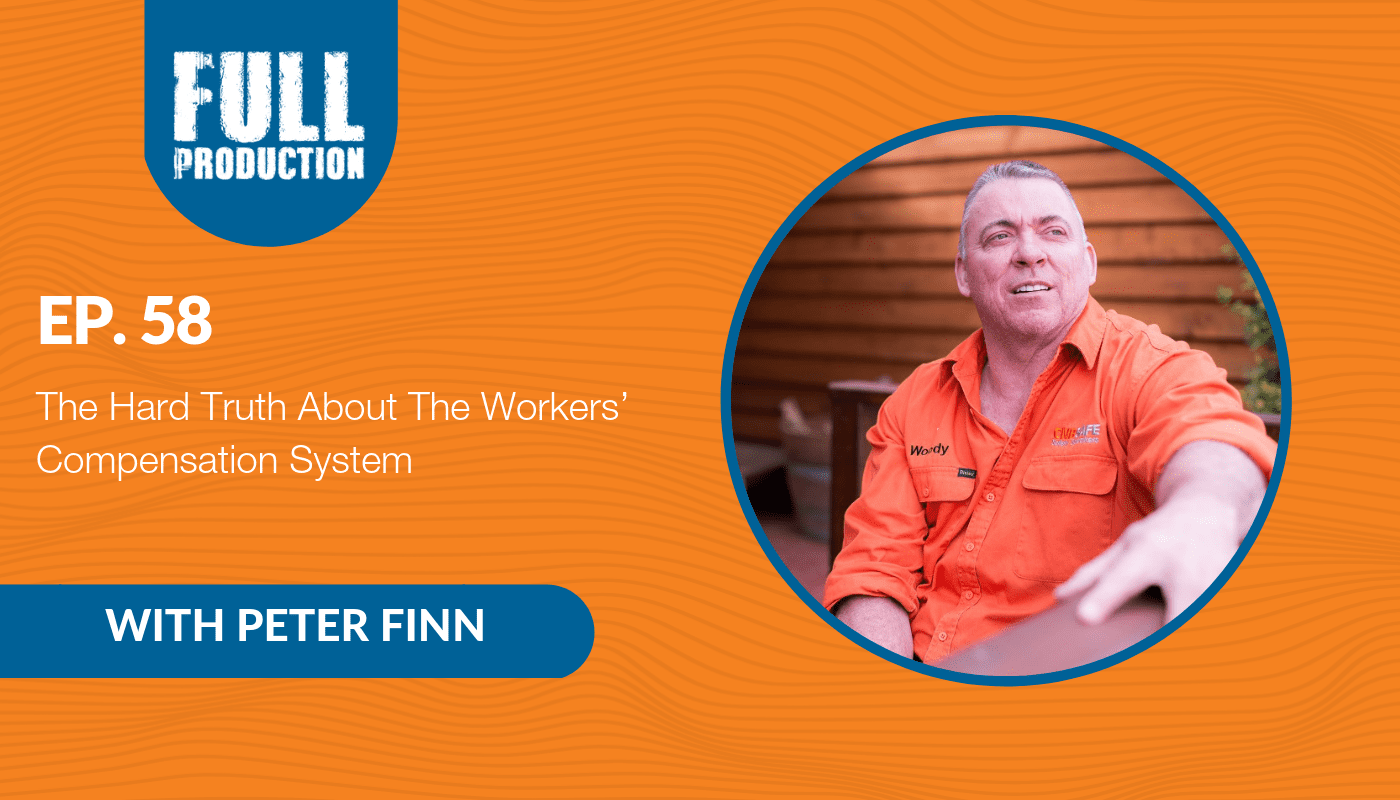It’s disappointing to see some people (and companies) that still see the workers’ compensation system as some sort of safety net for stupidity, there to pick up the pieces of lax standards or silly behaviour. Unfortunately, as some discover, the reality of suffering an injury and receiving compensation is a very, very different thing.
The person who knows this better than most is award-winning mining safety advocate and speaker, James Wood. He joined us for a second time on the Full Production podcast with some hard truths about the workers’ compensation system and, perhaps, some cautionary tales for those who still think they can take chances on the worksite with impunity.
Workers’ Compensation is Not a Safety Net
As you can imagine James has seen many people on the compensation journey and the process can be startling. Some have been effective and some ineffective.
As James says, “the theory behind workers compensation is good. It’s designed to provide some sort of security for someone who gets hurt at work. However, it doesn’t always work like that.”
With more than behind him sharing the safety message at mine sites all over the country, he’s got more than his fair share of stories where workers’ compensation a disappointing and harrowing experience.
“One of the biggest issues I’ve seen is people who get hurt and that do end up with some sort of payout that then becomes a bit of false comfort. Because they think, oh yeah, I’ve got X amount of dollars in the bank, so I now don’t have to go back to work, or I now don’t have to concentrate on getting myself physically well again,” James says.
“But no matter what amount of compensation someone gets, it’s eventually going to run out. It’s going to fizzle out. You’ve got to look at what it’s meant to do. My view is that compensation is great to provide you with the support you need while you need it. But then it’s up to you the individual to get back on with life,” he says.
A System Stacked Against The Injured
Anyone who suffers a workplace accident is going to face some pretty dark days, and uncertainty about where their future lies. It takes a lot of energy in itself. But as James explains it doesn’t stop there.
“I think it’s a system. That’s probably the best way to explain it. The whole worker’s compensation scheme is a system. And that system is designed, and I know I’m going to get a lot of people that are going to argue with me, but it’s designed to, not break the person that gets hurt, but it’s very hard to beat that system. Let’s put it that way,” James says.
“Now if someone gets hurt. You’ve got an individual, and in most cases they’re blue collar working class people, and then all of a sudden they’ve got companies they’ve got to fight, they’ve got companies that have their own legal firms working for them, you’ve got insurance companies, and their whole job is to minimise the amount of payment they have to give to an injured person, so you know the energy that you’re talking about, it’s just huge. It’s massive. And a lot of people give in,” he warns.
Fighting this system can follow a familiar and dispiriting path, James explains. “After the first year, they’ll be saying right, we’re going all in. We’re going to fight this. We’re going to try and get as much compensation as I can for the injury that I’ve sustained. But by year two, their resources are running out. They’re in a lot of pain in a lot of cases, and their whole lifestyle change is getting to them. That energy diminishes, and by year three, they’re going, you know what, I just want this shit finished. I want it all over and done with. You give me ten dollars and I’ll walk away and never have to talk to you again.”
“The whole workers’ compensation system is designed to get you to a point where you say, you know what, I don’t want to do this anymore.”
James has much more to say on this very important subject on the Full Production podcast. You can hear the entire conversation here.


